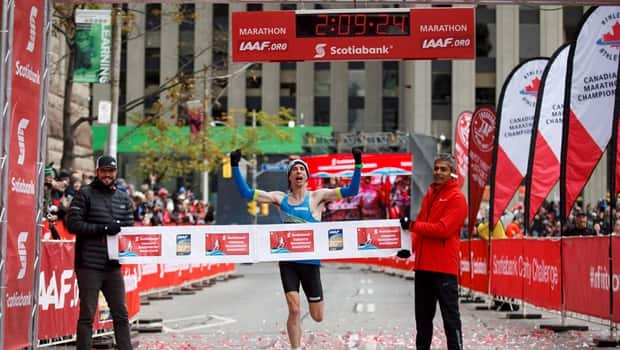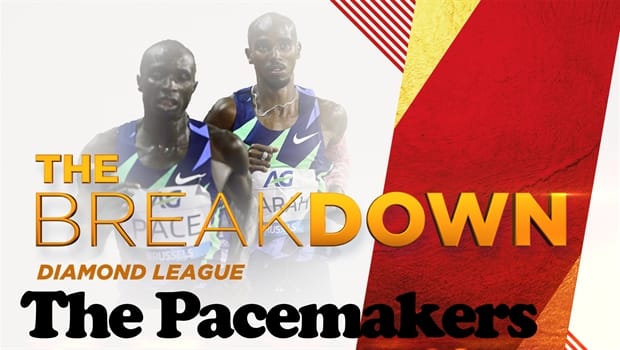The Marathon Project: ‘Time is now’ for Canadians to take shot at Olympic standard
[ad_1]
The Marathon Project will be the first competition at the distance for Canadians Justin Kent and Ben Preisner, who also share the same coach and a love for road racing after a seamless transition from the track.
But they took different paths to this weekend’s elite-only professional race in Arizona, while the latter appears more aggressive in making an immediate push for the Tokyo Olympic standard.
“I had my eye on the Olympic standard and a lot of my training was geared towards that,” said Preisner, who spent the final five weeks of his marathon build running at altitude in Flagstaff, 270 kilometres north of Chandler, site of Sunday’s 42.2 km event.
“Through my half marathon training and what I’ve done now in the marathon, I’ve felt I’m capable of hitting the standard. This is the time to do it. The Olympic year is [approaching] and the [qualifying] window is closing [May 31]. I might as well give it a shot and be confident going in.”
Preisner, one of six Canadians who will take the line at 10 a.m. ET, also trained at Flagstaff in January until his planned marathon debut in London was postponed in March when coronavirus shut down sports in North America. The 24-year-old ran his own marathon time trial in April in two hours 15 minutes 24 seconds, nearly four minutes off the 2:11:30 men’s Olympic standard.

Preisner then shifted his focus to the half marathon and noted he was in shape to lower his 1:02:57 personal best at the world championships in October before Athletics Canada pulled its team from the event after a spike in COVID-19 cases in Poland.
“I took that fitness and it played well into this marathon build,” said the native of Milton, Ont.
Preisner won his debut half marathon in 2019 in Vancouver and four months later at the Toronto Waterfront event after five years of cross-country and track running at the University of Tulsa.
“I love the feel of road racing. It’s kind of a fast cross-country race and I’ve always excelled at the longer distances.”
Kent, who remained in Vancouver to train, pointed out many don’t reach the marathon standard in their first race like Cam Levins, who set the national record in his debut at Toronto in 2018 and is racing Sunday.
WATCH | Cam Levins smashes Canadian marathon record:
In his marathon debut, Cam Levins of Black Creek, B.C., broke Jerome Drayton’s 43-year-old Canadian men’s marathon record by 44 seconds. Levins finished fourth in the Toronto Waterfront Marathon with a time of 2:09:25. 1:48
“I feel I’d be doing the distance a bit of a disservice if I said I’d run the Olympic standard in my first go,” said Kent, who is also coached by Richard Lee at BC Endurance Project. “Training has been going really well and I want to come out of this marathon with a positive experience, whether that’s 2:15 and I finish strong, or I get closer to the Olympic standard. I’d be happy either way.”
The 28-year-old mostly ran the 1,500 metres and mile before bursting on the road scene last year and winning the Vancouver Sun Run 10K.
‘There’s such an allure with the marathon’
This year, Kent won the men’s race of the first-ever virtual Canadian 10K Championships, met the world half marathon standard and ran a 62-minute half along Vancouver’s Seawall.
WATCH | CBC Sports’ Anson Henry discusses the importance of pacemakers:
What is a pacemaker? Are they important? Oh, they’re important alright. CBC Sports Anson Henry breaks it down. 2:44
“I’ve always felt good running on the road,” he said. “I think my stride clicks a bit more with a harder surface and I get in a groove.
“There’s such an allure with the marathon and as a distance runner it’s always fascinated me.”
Kent said he prepared mentally for The Marathon Project, which will be contested on a fast 6.9 km loop course with roundabouts at each end, by running loops in training and 50 laps around a track last month in breaking the national 20,000 record by nine seconds in 1:01:01.
A small but major detail for the @MarathonProj. Today David Katz (Olympic course measurer) & I extended the turns at the roundabouts 5 meters in order to make the turns & tangents more gradual (& faster), no small thing with athletes running around these 12x.#TheMarathonProject pic.twitter.com/bf4GzuVWAv
Lee believes Preisner and Kent could run sub-2:14 with a reasonable chance of being under the Olympic standard if the weather cooperates, they feel strong, control their nerves and fuel properly during the race.
Scottish runner Sarah Inglis, a physical education teacher in Langley, B.C., is also making her marathon debut in Arizona while Natasha Wodak, Kinsey Middleton and Rory Linkletter round out the Canadian contingent. Ben Flanagan of Kitchener, Ont., who won his debut half marathon earlier this month, will be a pacesetter for the 2:11:30 men’s group.
Wodak’s primary goal for Tokyo is the 10,000, but the Vancouver runner is “feeling fit and healthy” and told CBC Sports she has had several workouts suggesting she can run sub-2:27 and under the 2:29:30 women’s Olympic standard.
“In my last two big sessions I was able to hit my target paces even though I had some pain — hamstring tendinitis that comes and goes,” said Wodak, who clocked 2:35:16 in her first and only marathon in 2013. “I know when it gets tough during the race and the pain sets in, I’ll be able to endure and fight.”
Levins, like Preisner, spent five weeks in Flagstaff continuing his build from the London Marathon.
The Black Creek, B.C., athlete ran at 2:09:30 pace through 35 km in the rain and cool conditions but later dropped out when the standard didn’t feel attainable.
The thought of a quick return to racing in the United States and being part of a quality field was attractive to Levins, who lives in Portland, Ore.
“If I lower the Canadian record, I should be in a good situation for being selected for the Olympics,” said Levins, who ran the course on Tuesday. “It’ll probably take that to solidify a spot. There are a lot of good Canadians [competing], a lot of guys in good form, but I have no reason to think I’m not ready.”
[ad_2]
SOURCE NEWS


